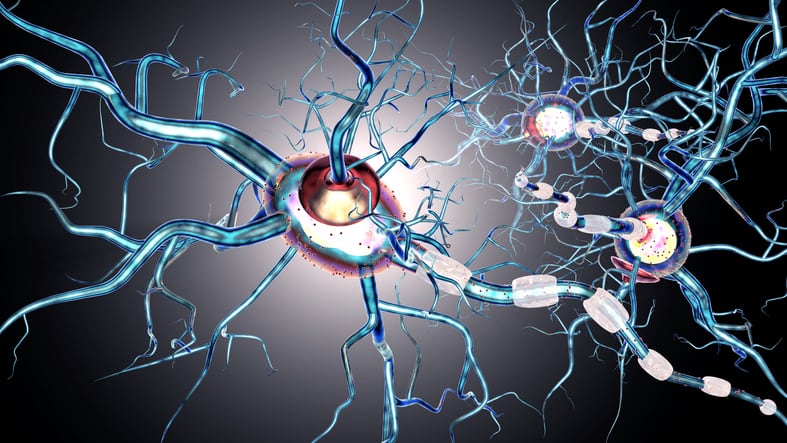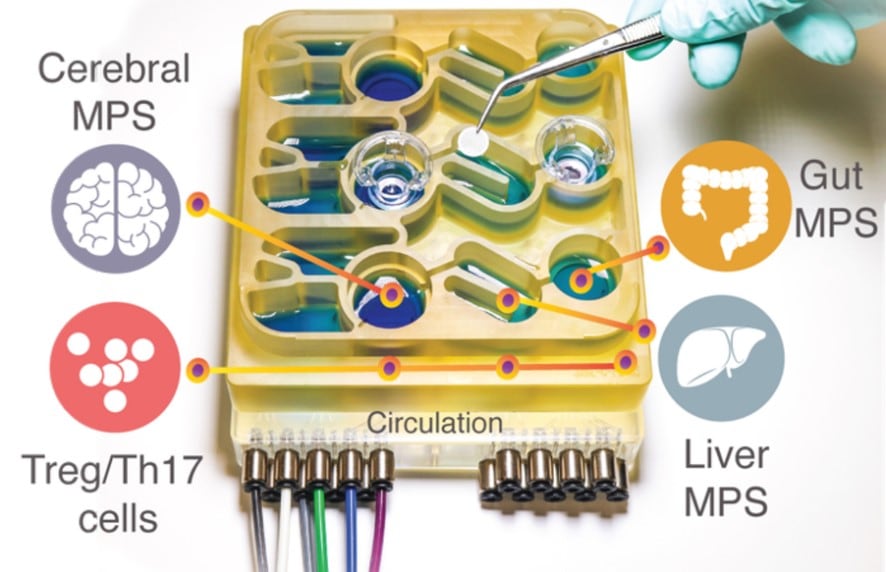Despite millions suffering from ALS, Alzheimer’s, and Parkinson’s, there’s still a big question mark surrounding specific causes of these diseases. Without a known cause, developing treatments is next to impossible.
Researchers from the University of Florida believe that bacterial composition of the digestive tract could play a key role in solving this mystery.
The research, published in PLOS Pathogens, confirms for the first time a link between specific bacteria species and physical manifestations of neurodegenerative diseases.
“Looking at the microbiome is a relatively new approach to investigating what causes neurodegenerative diseases. In this study, we were able to show that specific species of bacteria play a role in the development of these conditions,” said senior author Daniel Czyz, PhD, Assistant Professor at IFAS/Department of Microbiology and Cell Science at the University of Florida.
Minimalist approach
To find this specific bacterial species, the scientists studied the digestive tract of a microscopic translucent worm or nematode, called Caenorhabditis elegans.
According to Czyz, the one millimeter-long worms are similar to humans in that they have intestines, muscles and nerves, but instead of being composed of billions of cells, each worm has exactly 959 cells.
“They are like living test tubes. Their small size allows us to do experiments in a much more controlled way and answer important questions we can apply in future experiments with higher organisms and, eventually, people,” explained Czyz. “We took a minimalistic approach where we use a simple nematode to colonize the intestine with individual bacterial species to assess their effect on host proteostasis across tissues.”
Misfolded protein
A hallmark of neurodegenerative diseases is the formation of misfolded protein aggregates that cause cellular dysfunctions. Misfolded proteins accumulate in tissue and ultimately lead to neurodegenerative disorders.
To learn more about this process, the authors introduced certain bacteria to the C. elegans worms to see if protein aggregation would occur in their tissues.
Czyz explained that is indeed what they observed. “We have a way of marking the aggregates so they glow green under the microscope. We saw that worms colonized by certain bacteria species were lit up with aggregates that were toxic to tissues, while those colonized by the control bacteria were not,” Czyz said. “C. elegans lacks the inflammatory system; therefore, the effect observed in our study is directly linked to bacteria. This is the first study that directly points out which bacterial species disrupt host proteostasis and contribute to protein aggregation and the associated toxicity."
Key findings
Czyz said a key takeaway is that bacteria that colonize the gut can affect protein folding in distant tissues. “More importantly, beneficial commensal bacteria that produce butyrate can suppress this detrimental effect.”
He added that the bacteria that stood out the most was butyrate-producing butyrogenic, as well as two species of Prevotella, which Czyz said almost completely suppressed protein aggregation.
“We also showed that some other bacteria produce compounds that counteract these ‘bad’ bacteria. Recent studies have shown that patients with Parkinson’s and Alzheimer’s disease are deficient in these ‘good’ bacteria, so our findings may help explain that connection and open up an area of future study,” he said.
The link between antibiotic-resistant bacteria and protein misfolding
According to Czyz, nearly all the bacteria they found associated with protein misfolding was also associated with antibiotic-resistant infections in people.
Czyz told NutraIngredients-USA that he certainly suspects there is a connection between antibiotic resistance and neurodegenerative diseases.
“With the increasing antibiotic resistance, our bodies are colonized by bacteria that are more resistant to antibiotics than ever before. As we take antibiotics, we eliminate protective commensal bacteria and could enrich the population of the detrimental microbes that contribute to disease pathogenesis,” he said, adding that more research is needed to demonstrate this.
Therapeutic options
Czyz told NutraIngredients-USA that probiotic developers shouldn’t jump the gun just yet, as further experiments in higher organisms should be conducted before using any strains as probiotics for neurodegenerative conditions.
“My laboratory is currently looking at the effect of all culturable isolates from the human microbiome on protein folding. These follow-up studies will determine exactly which bacterial strains are beneficial and which are detrimental,” said Czyz.
Source: PLOS Pathogens
DOI: 10.1371/journal.ppat.1009510
“Colonization of the Caenorhabditis elegans gut with human enteric bacterial pathogens leads to proteostasis disruption that is rescued by butyrate”
Authors: A. Walker et al.




